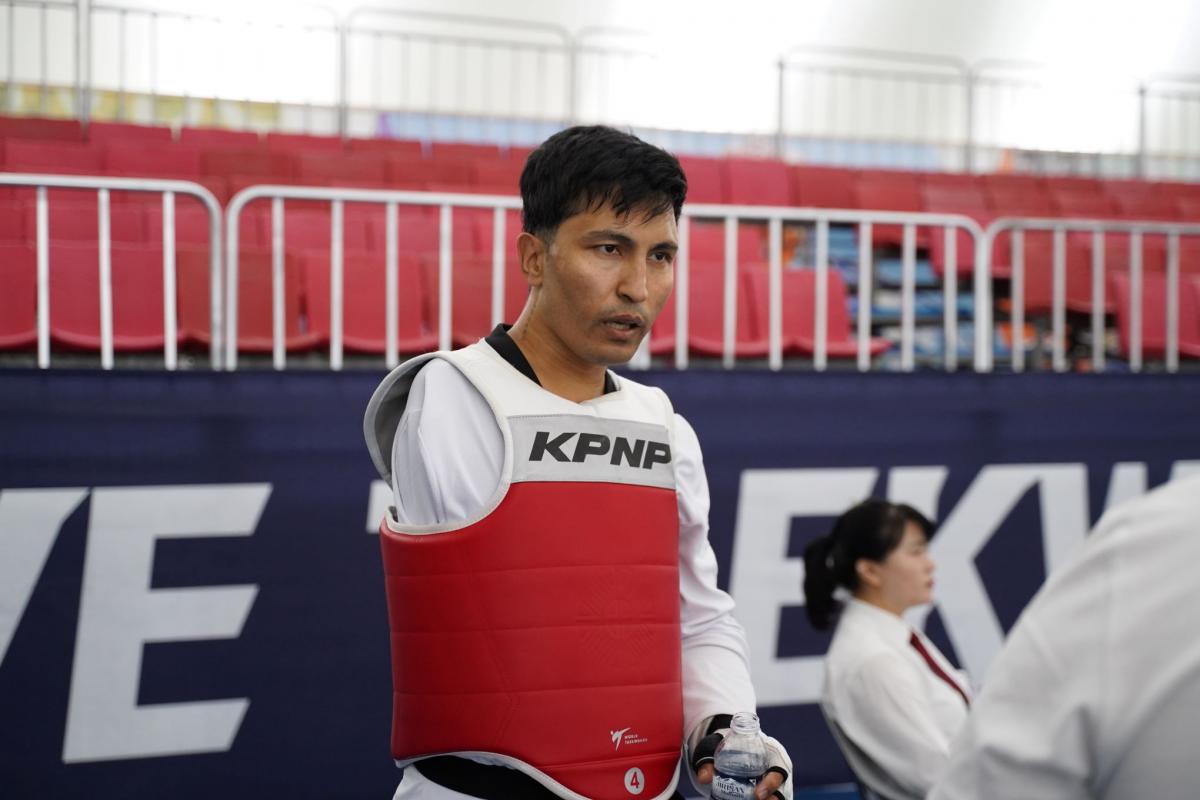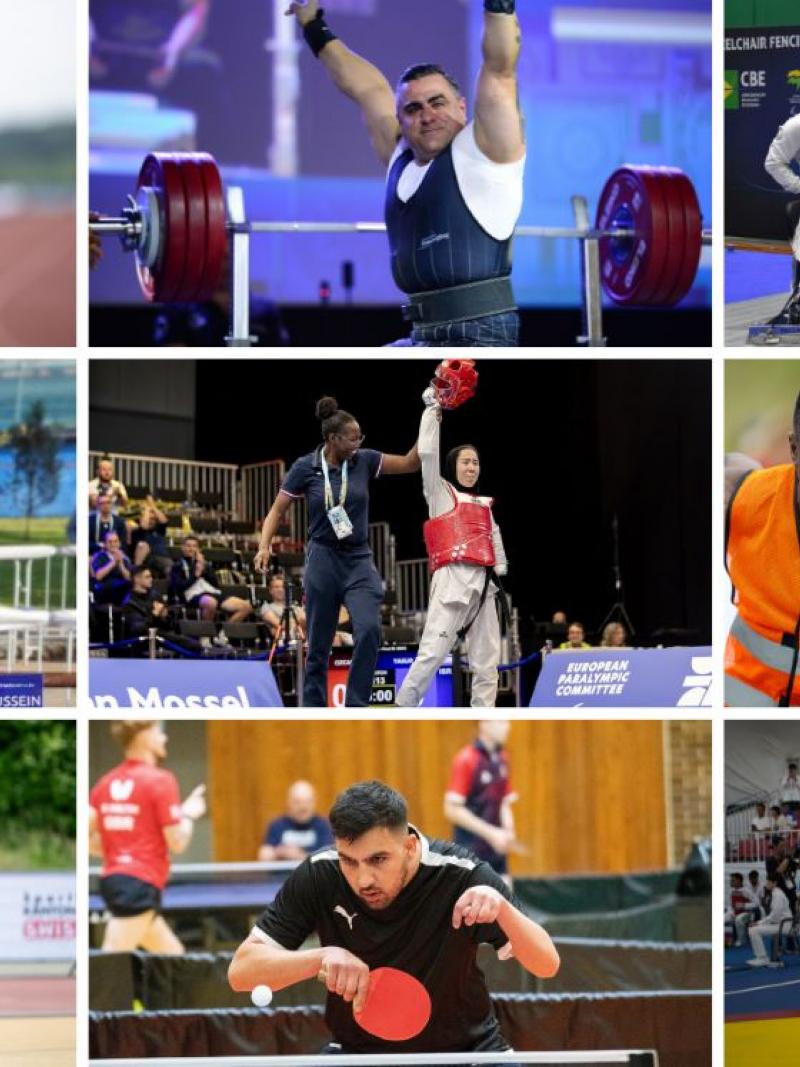Q&A with Refugee Paralympic Team athlete Hadi Hassanzada
Hadi Hassanzada will compete in Para taekwondo as a member of the largest-ever Refugee Paralympic Team The Q&As have been edited for length and clarity 09 Jul 2024
1. Tell us a little bit about your story.
My life story has mostly been about displacement. I was born in Afghanistan and grew up in Iran, and then I returned to Afghanistan thinking that the country had become peaceful. I was wrong and chose the difficult path of leaving and getting myself to Europe because I saw it as my best chance to live a peaceful life.
2. What are some of the biggest challenges you’ve faced in your life and your journey to Paris?
My life has been full of challenges. I come from a poor family, and I grew up outside my homeland, but the biggest challenge in my life was the amputation of my right hand.
3. Can you share any personal stories that highlight how much you have had to overcome to get to Paris?
Not having a right hand has always been difficult for me, and my journey fleeing as a refugee I will never forget. Living in the forests of Turkey with my friends in the cold of winter, there were times when I was close to death.
4. How did you get involved in sport?
As a young child, I grew up with sports and it has always been a part of my life. Even as an amateur, I always loved sports. When I came to Austria and met my coach, I started Taekwondo. It was very exciting for me to do this sport the way I am now professionally.
5. What has sport meant to you and your life?
Exercise improves my mental and physical health. It strengthens the sense of responsibility in my life, and it gives me more self-confidence.
6. What is your biggest sporting achievement to date?
Until now, my biggest sporting achievements have been mostly limited to top place finishes in smaller tournaments. But I hope to achieve great results in the years to come to make myself proud as well as the others who have supported me on this journey.
7. Was there one big moment that has been like a turning point in your life?
Throughout my long journey and the challenges that I’ve faced - moving to another country, my disability, a failed marriage, changing jobs and being away from my family - I have learned to never be disappointed and to try my best to succeed. Life really becomes meaningful when you find a way to overcome challenges and there is always a way to achieve happiness and success.
8. What was the biggest lesson you learned on your journey?
That refugees can succeed despite all the problems they face. They can compete with other athletes and achieve their dreams.
9. What are your hopes for Paris?
I will do my best to stand on the podium.
10. What message are you hoping to send to others?
Deficiencies can be turned into opportunities; you just need to recognise them and work hard to overcome them.
11. What has sport meant to you and to your life?
Sport has allowed me to feel happy with myself and to enjoy those around me. It’s also helped me become more self-confident, and more open to opportunities and success.





